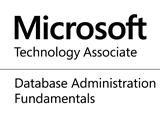I’ve been looking for a different job, one with more potential to learn and actually dealing with database administration instead of just pulling reports.
But I haven’t conducted a real job search in a long time.
I’m on LinkedIn, but I’ve never been very good at networking.
And I have a problem with confidence.
In November, I attended an event cosponsored by Women Veterans Connect and Swords to Plowshares in San Francisco.
Over the years, I’ve said that I missed the military, but until I was surrounded by other female veterans, I didn’t realize how much. It was a great day, a great environment. I had a lot of fun and met a lot of people. I was able to connect to some of them on LinkedIn.
One of the women, Melissa Washington, is the expert networker I’ve never been – and we were on the same West Pac in 1993/94. We didn’t know each other then, but the coincidence is so cool. (Melissa has also written a book Get Back to Work)
Anyway, Melissa realized that several of us drove out to San Francisco from the Sacramento Valley area and asked us if we wanted to start a local Women Veterans Networking group. Heck yeah! We had our first meeting a couple of weeks ago. It was a lot of fun! And I think I made some connections that will turn out to be valuable in multiple ways.
When it comes to updating my résumé and selling myself, I’ve got trouble. I suppose a lot of people do. I’ve been reading job descriptions and sample résumés and getting discouraged.
Almost all of them have multiple programming languages (R, Python, C++, etc) in addition to SQL skills and experience listed. I can learn programming languages, but it’s hard to figure out what to concentrate my limited study time on. What direction do I go? I was starting to panic that maybe I’ll be stuck in this job forever because I can’t get up the courage to go anywhere else because of my hesitation to learn programming.
A friend mentioned she was taking a couple of courses on Coursera. I looked into it and there’s a data science sequence from Johns Hopkins that will work for me. It’s a lot cheaper than any grad degree or certificate program I’ve looked at. I’ve signed up to start on Monday.
I’m still working on the SQL Server certifications as well.
Last night, I found CodeSchool and did a very brief intro to programming in R. I was immediately pretty comfortable with it, as it’s based on Linear Algebra (scalar vectors, matrices, etc). Maybe it won’t be that difficult to get up to speed on what I need to know.





